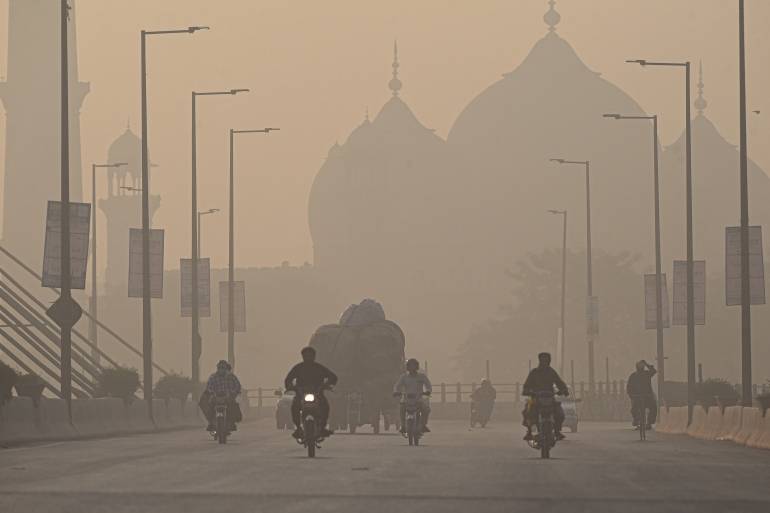LAHORE – Following the worsening pollution conditions, Lahore’s air quality index has risen above 300, and the Meteorological Department reports that there is very little chances of rain until mid-December.
The Punjab government has also established an expert group to plan for artificial rain on November 28 and 29 in order to curb the smog in the city.
Dr Manoor Sabre, head of the Punjab University Institute of Geography and a member of the technical committee, claimed that artificial rain was just salt put on top of clouds that were already there. It will cost Rs40 million to create one downpour.
Dr Sabre went on to say that since pollution is a year-round problem in the city, artificial rain is necessary and would not have an impact on the climate system.
The idea of artificial rainfall was first tried at Khanpur three years ago by Dr Sabre.
How does man-made rainfall work?
The procedure of creating artificial precipitation, which involves first chemically enriching the clouds and then using specialised planes to drop sodium chloride from a height of two to four thousand feet above the clouds, is also fascinating.
Spraying silver iodide and other chemicals causes ice crystals to grow in the clouds, which then intensify and produce rain.
In addition to the potential for extreme heat and humidity, the chemicals in the rainfall may be hazardous to human health.
In Tanzania, silver iodide is the most deadly substance used in artificial rainmaking, while other compounds such as carbon dioxide, calcium chloride, potassium chloride, sodium hydroxide, aluminium oxide, and zinc are also utilised.
Dr. Victoria Ngumo, a specialist in water and human health, claims that artificial rain is a major cause of several illnesses, including cancer, AIDS, and malaria.
Research from the University of California claims that water-insoluble silver iodide is a hazardous material that contaminates water. Studies have indicated that this substance is hazardous to fish, people, and other living things.
Chemicals can enter the body from the mouth, skin, or breath. Small doses might result in renal and lung problems as well as stomach issues.














